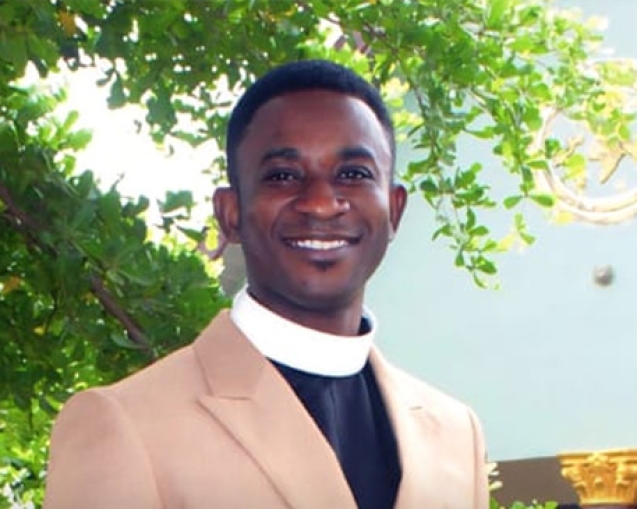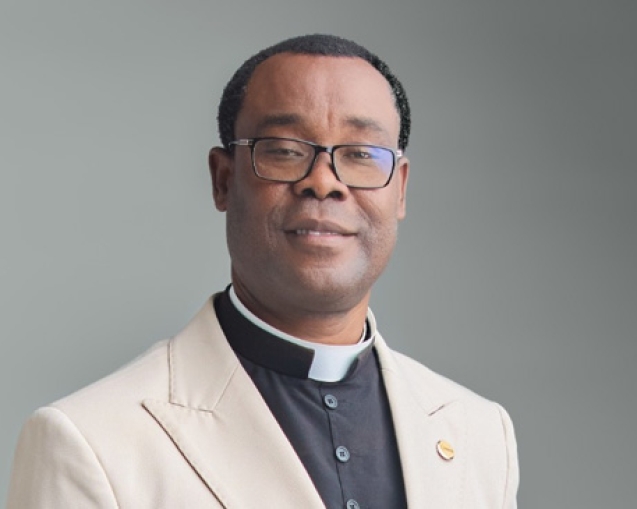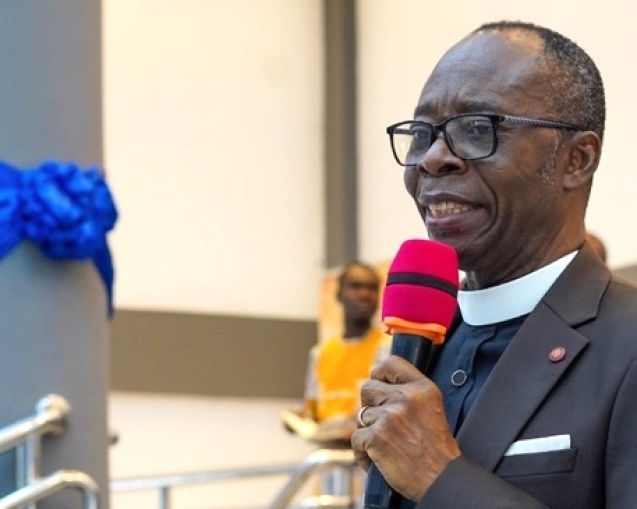INTRODUCTION
The ongoing debate about polygamy and multiple marriages on various media platforms in Ghana has caught my attention in recent weeks. As an observer, I initially intended to refrain from participating in or commenting on the discussion. However, after witnessing a short clip featuring a self-proclaimed clergyman (involved in a polygamous relationship) vigorously advocating for polygamy as a means to attain longevity, I felt compelled to contribute to this discourse. In this article, I will present arguments from various perspectives to demonstrate why this notion is flawed and should not be supported, as espoused by the aforementioned clergyman.
I address this matter in my capacity as a fellow clergyman, having taken a solemn oath to uphold the gospel unwaveringly. Additionally, I respond as a Christian media professional entrusted with the role of filtering content for consumers, allowing us to discern between truth and falsehood. Lastly, in pursuit of moral rectitude and national development, it is essential for all individuals to collectively work towards realising this vision, and I am committed to playing my part.
POLYGAMY AND MULTIPLE MARRIAGES – A HISTORICAL PERSPECTIVE
The Bible is a compilation of doctrinal, spiritual, historical, and archaeological accounts. Its contents are not mere products of the author’s imagination; rather, they recount real-life stories and historical events from antiquity, documented for our education, enlightenment, and growth. The Apostle Paul’s message to the Church in Rome emphasised that the records of old were written for our learning (Rom. 15:4). It is important to note that the Bible is an honest record, depicting the good, the bad, and the ugly, with transparency. However, this does not imply endorsement of the negative examples but rather serves as a guide for readers to avoid what is harmful and embrace what is virtuous. With this understanding, we can trace the origins of polygamy and multiple marriages in the Bible.
The first recorded instance of multiple marriages is found in Genesis 4:19, where Lamech, a descendant of Cain, took two wives – Adah and Zillah. Although speculation exists regarding Lamech’s reasons for choosing polygamy, given that this choice deviated from the norm set by his ancestors, his poetic utterance in Gen. 4:23-24 reveals his disposition – one of rebellion, pride, and vengeance. This decision stemmed from the aftermath of the advent of sin and its dire consequences. This effect can be likened to the “fig leaves syndrome” (Gen. 3:7), wherein actions driven by human wisdom seek to address conditions through logical assessment. Lamech’s choice to marry two wives can be seen as an embodiment of this syndrome. The Apostle Paul later elucidated that God gave certain individuals over to engage in shameful actions (Rom. 1:24).
POLYGAMY – A CULTURAL PERSPECTIVE
Proponents of multiple marriages and polygamy often justify their stance with cultural arguments. They contend that ancient cultures, particularly in the Near East, have historically embraced and sanctioned polygamy. This assertion is grounded in the belief that the limited population during those times prompted God to allow polygamy as a means to promote procreation and fulfill the command to “be fruitful and multiply.” However, this argument fails to acknowledge God’s character as light and holiness, rendering attributions of sin to Him problematic.
Moreover, these proponents often dissociate God from cultures, despite the Bible’s assertion that God’s presence exists within all cultures, as articulated by Apostle Paul during his mission to Lystra and Derbe (Acts 14:17). The Earth belongs to the Lord and all its fullness, which encompasses cultures, values, norms, and every aspect shaping the world’s existence.
The fall of humanity also affected cultural norms, as creation was subjected to frustration (Rom. 8:20). The gospel, however, aimed to reconcile the world, including its systems and cultures, back to God through Christ (2 Cor. 5:21). Therefore, the idea that polygamy is a solution for longevity must be scrutinised.
WHY POLYGAMY IS NOT A SOLUTION FOR LONG LIFE
- POLYGAMY IS NOT BIBLICAL
It is crucial to affirm that polygamy is not supported by scripture. The creation narrative in Genesis establishes monogamy as the original design for marriage (Gen. 2:24). Adam and Eve, the first couple, exemplified this monogamous relationship. Despite God’s ability to create multiple spouses for Adam, He chose to create only one. The marital relationship is also a prophetic reflection of God’s relationship with the Church. Therefore, any departure from this design can result in spiritual infidelity, as evident in Israel’s idolatry in the Old Testament.
- POLYGAMY IS COSTLY
Polygamy is associated with substantial economic, social, and psychological costs. In cultures that emphasise lavish marriage ceremonies, engaging in multiple marriages can strain one’s financial resources. Economic variables often change, causing costs to escalate with each subsequent marriage. Furthermore, the psychological and social toll of polygamy is immeasurable, as evident in historical cases. The Taliban’s recent crackdown on polygamy within its ranks highlights the economic burden this practice can impose.
- POLYGAMY IS A DISTRACTION AND DETRACTOR
Polygamy can be a temporary pleasure but ultimately distracts and detracts from one’s focus and potential. Engaging in multiple relationships can lead to emotional turmoil and lack of focus, inhibiting personal growth and alignment with God’s will. King Solomon’s example underscores the spiritual danger of polygamy, as he compromised his devotion to God through his numerous wives.
- POLYGAMY PROMOTES ENVY AND JEALOUSY
We cannot belabour the point that one of the devastating effects of polygamy is how it promotes envy and jealousy. It is evident in the lives of the patriarchs in the scriptures how polygamy dealt a significant blow to the bloodlines. From the encounter between Abraham, Sarah, and Hagar, we saw the elements of jealousy and envy to the extent that God had to intervene to settle the issue by instructing Abraham to let Hagar go (Gen. 21:11-12). Additionally, the situation became murky in the lives of Jacob and his four wives, along with his twelve children, and the picture clearly portrays the dagger of envy and jealousy that pierced through the fabric of this family.
Beloved, even though the Bible paints a beautiful picture of Jacob’s life and the blessings he carried, we cannot overlook the scars of the emotional breakdowns he had to manage and deal with because of his actions, the actions of his children, and even to the extent that it was evident he despised some of his children and even cursed some of them on his deathbed. Though Jacob’s home was blessed, it was not a loving and happy home due to the fangs of envy and jealousy that polygamy had brought.
- POLYGAMY IS UNHEALTHY
The final reason why I think polygamy should not be seen as a panacea for long life is that polygamy is unhealthy. Beloved, polygamy is akin to having multiple sexual partners, as is the case in many instances. In effect, polygamy is another form of promiscuity. Now, the effects of this kind of promiscuity are that the more sexual partners one has, the greater their risk for sexually transmitted diseases (STDs) like HIV/AIDS and other life-threatening conditions like prostate cancer, cervical cancer, and oral cancer. It is clear that there are risks associated with polygamy; hence, the admonition of scripture to stay true to the dictates prescribed in the scripture – one man, one wife, and faithfulness. For polygamy, rather than elongating life, tends to shorten it.
CONCLUSION
The purpose of this article is to provide a theological contribution to the ongoing debate, seemingly approving and endorsing the concept of polygamy and multiple marriages. With the prophetic blueprint that the family line is gradually becoming an endangered species, there is a need to raise counter-responses in order to clear the mist so that the values espoused for marriage and family life are not compromised, even as society evolves in this post-modern era.
Written by Kwasi Asante Annor (General Manager, Pent TV)


















